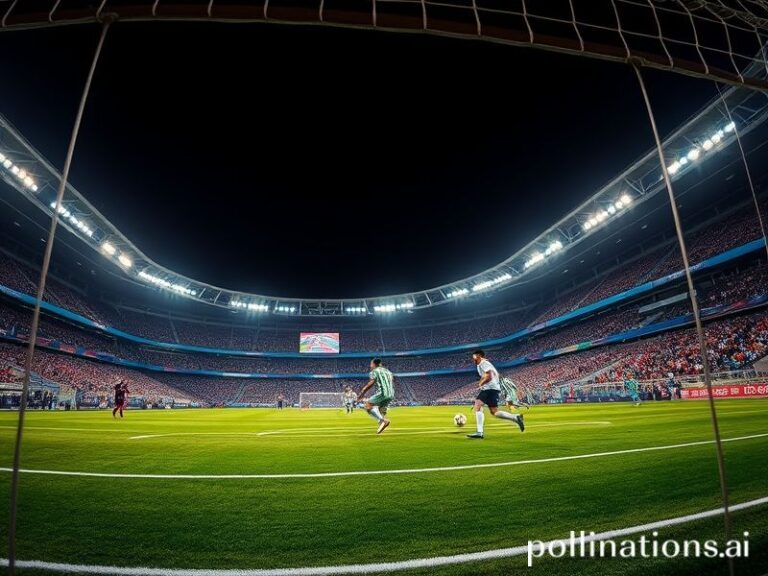From Centre Court to Cell Block C: Boris Becker’s Global Fall and the Passport Politics of Punishment
When Boris Becker—three-time Wimbledon champion, German national treasure, and walking advertisement for 1980s exuberance—was escorted to a Victorian-era cell in Wandsworth Prison last April, the planet performed a collective shrug. From Lagos to Lima, the verdict was filed under “rich-people problems,” somewhere between a crypto-founder’s tax evasion and a pop star’s yacht fire. Yet the Becker saga is less a tennis footnote than a global morality play, complete with multiple passports, Caribbean hide-and-seek, and the sort of creative accounting that would make a Swiss banker blush.
The charges were quintessentially post-imperial: hiding £2.5 million in assets after being declared bankrupt in 2017. Among the alleged concealments were a flat in Chelsea (price: more than the GDP of some Pacific island nations), a “forgotten” bank account in his daughter’s name, and—because irony insists on a front-row seat—his 1985 Wimbledon trophy. The symbolism was delicious: the very silverware that once crowned West Germany’s Cold-War swagger now sat in a British evidence locker, collecting bureaucratic dust.
International reaction split along predictable lines. In Germany, Der Spiegel ran a cover story titled “Vom Volkshelden zum Insassen,” which translates roughly to “From Folk Hero to Inmate,” accompanied by a photo of Becker looking like a man who’d just discovered the Wi-Fi password is “Brexit.” In the UK, tabloids delighted in the Teutonic schadenfreude, recycling headlines from 1999 when Becker fathered a child in a broom closet at Nobu. Meanwhile, in Nigeria, where tennis courts are as rare as consistent electricity, social media users asked whether Becker’s 30-month sentence was longer than the average corruption trial back home. Spoiler: it is.
The broader significance lies not in Becker’s fall—hubris is the oldest spectator sport—but in how neatly it illustrates the international pecking order of consequences. Had Becker been, say, a Russian oligarch with Kremlin connections, he might now be sipping tea in Dubai while Interpol politely looked the other way. Had he been a Silicon Valley founder, he’d probably be on CNBC explaining how bankruptcy is actually a growth strategy. Instead, he chose the wrong passport at the wrong time: a German in Brexit Britain, where residual resentment over EU “meddling” still flavors judicial coffee.
Wandsworth Prison itself became an inadvertent symbol. Once described by its own inspectors as “squalid,” it houses 1,600 men in space designed for 900, making it a microcosm of every overcrowded penitentiary from Manila to Memphis. Becker’s fellow inmates reportedly include Albanian drug couriers and South London teenagers whose grand larceny extends to stealing e-scooters. One can picture the former champion teaching serve-and-volley techniques in the exercise yard, trading cigarettes for tips on topspin. The UN, ever diplomatic, cited the facility in its annual report on global prison conditions, proving that even disgrace can be multilateral.
Economists, never ones to miss a metaphor, seized on the Becker case as a parable of post-2008 accountability. While Deutsche Bank paid billions in fines for money-laundering without a single executive seeing a cell, Becker’s personal bankruptcy—mere pocket change by comparison—earned him concrete walls. The message, shouted from Davos to Dubai, is clear: if you’re going to fail, fail systemically. Individual failure is gauche; institutional failure is simply Tuesday.
As Becker marks time, the world spins on. China’s property bubble burgeons, Argentina’s inflation makes his hidden millions look quaint, and Wimbledon continues to sell strawberries at prices that could service the national debt of a midsize country. Perhaps the most international lesson is this: talent, like currencies, fluctuates. Yesterday’s deutschmark hero is today’s pound-sterling cautionary tale, and tomorrow’s meme on a Ghanaian WhatsApp group.
In the end, Becker’s jail term is not about tennis, or even justice. It’s about the thin membrane separating the VIP lounge from the holding cell, and how easily a passport, a trophy, and a few shell companies can slip through it. Somewhere in Wandsworth, a man who once leaped over nets now counts metal bars. The rest of us watch, munching overpriced strawberries, and pretend we’re not next.







